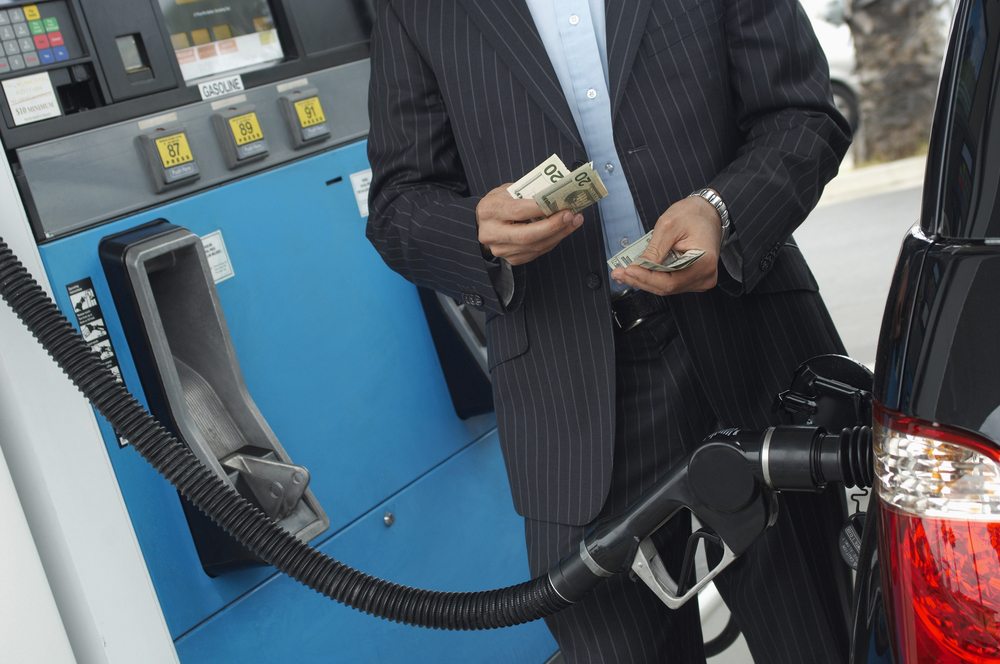Gas Station Lease: Your Guide To Opportunities & Profits!
Is the dream of owning a gas station within your grasp? The path to gas station ownership can be navigated with strategic decisions, including the option of leasing, which offers a lower-risk entry point into this lucrative industry.
A gas station lease agreement, also referred to as a commercial lease agreement, lays the foundation for the relationship between a property owner and the gas station or convenience store company. This agreement outlines the terms of occupancy, payment, and responsibilities, forming a crucial legal framework for both parties. It's a common and often preferred entry strategy for aspiring entrepreneurs.
The allure of the gas station business extends beyond just fuel sales. Convenience stores, car washes, and other services can significantly boost profitability. However, the high initial capital outlay and operational complexities often deter potential investors. This is where the option of leasing a gas station presents a compelling alternative.
- Hdhub4u Free Movie Streaming Alternatives You Need To Know
- Hdhub4u Find Movies In Hindi More Latest Updates Streaming
It's estimated that the average monthly cost to lease a gas station in the United States hovers around $2,500, a figure that can vary widely depending on location, size, and market conditions. This cost is a key factor when weighing the pros and cons of purchasing versus leasing.
Consider the story of Welcome Fuels, a company offering gas station businesses for lease. Their leasing programs provide a flexible avenue for entrepreneurs and investors seeking to either enter or expand within the dynamic gas station industry. Similarly, other companies have created programs to ease the entry barriers.
The choice between buying and leasing has significant implications. Buying demands substantial upfront capital, involves dealing with permits and construction, and carries higher financial risk. Leasing, on the other hand, provides a more accessible route, often removing many of those initial burdens.
- Google Search Woes No Results Fixes Tips
- Google Search Troubleshooting No Results How To Fix It Guide
However, the decision hinges on careful consideration. A lease isn't a blanket solution; it is a starting point from which to then assess an individual's long-term business aspirations.
Key Considerations When Evaluating a Gas Station Lease:
1. Location, Location, Location: The success of a gas station is heavily reliant on its location. High-traffic areas, proximity to major roads, and visibility are critical factors.2. Size and Configuration: The size of the station and the number of pumps directly impact potential revenue and operational costs.3. Lease Terms: Carefully review the lease agreement, understanding the duration, rent payment structure, and responsibilities of both the lessee (you) and the lessor (property owner).4. Permitting and Licensing: Research local and state regulations concerning permits and licenses required to operate a gas station.5. Additional Costs: Factor in potential costs beyond rent, such as environmental compliance, repairs, and maintenance.6. Franchise vs. Independent: Determine whether you prefer a franchise model (e.g., Chevron, Shell) or an independent operation. Each has its advantages and disadvantages.7. Profitability: Analyze the potential profit margins based on projected fuel sales, convenience store revenue, and other services offered.8. Competition: Evaluate the existing competition in the area and how you can differentiate your business.9. Business Plan: A well-defined business plan is essential for any gas station venture, detailing your financial projections, marketing strategies, and operational plans.10. Exit Strategy: Have a plan for how you will eventually transition out of the business (e.g., selling, transferring the lease).
Many entrepreneurs are increasingly drawn to the lower-risk profile of leased gas stations. This model mitigates the burden of substantial capital outlays and the complex requirements involved in building and financing a new or existing store. Gas stations can be modernized and upgraded without necessitating a complete overhaul of the initial budget, and existing businesses can be acquired at a price that suits the new business owner.
The cost of running a gas station varies greatly depending on numerous factors. Location, the physical size of the station, its design, and whether it is leased or owned all contribute to the overall expense structure. Additionally, environmental compliance, potential repair work, and other operational aspects can introduce extra costs.
For instance, consider the specific scenario of a gas station located in Franklin County, Arkansas, that is currently for lease or sale. This particular station has been a fixture in the community for 14 years. Such opportunities are not unique and illustrate the existing, vibrant market in the industry.
The decision to lease or buy should depend on the individual's financial capability, business goals, and tolerance for risk. For example, consider the individual considering the purchase of a gas station for $1.3 million, with an anticipated yearly revenue of around $175,000. While this presents a tempting investment opportunity, leasing a similar station could be less risky, enabling profit and flexibility.
Leasing Advantages and Disadvantages
- Advantages
- Lower initial investment
- Reduced risk
- Flexible terms, allowing for the testing of the market
- Less responsibility for property maintenance
- Can be a faster route to market compared to building from scratch.
- Less control over the property
- Rent payments ongoing
- Restrictions on property improvements and modifications
- Limited long-term equity and building ownership
- The potential for the lease not to be renewed.
If you're leaning towards leasing, explore different options. "Welcome Fuels" and similar companies offer gas station businesses specifically for lease, providing entrepreneurs and investors with accessible entry points into the industry. This avenue allows for a more flexible approach to gas station ownership.
The business plan is the foundation of any successful gas station venture. It helps to define your objectives and assess the market potential. This step will guide the entrepreneur towards making informed decisions.
Gas station leases, like commercial lease agreements, are typically between a property owner and a gas station company or convenience store operator. They outline the specifics of the agreement, including the duration of the lease, monthly payments, and other responsibilities of both parties. The contract is the bedrock of the relationship.
When selecting a gas station to lease or buy, it's crucial to look beyond simply the fuel pumps. Explore additional revenue streams, such as convenience stores, car washes, or even the option to lease space to other businesses. This diversification can enhance profitability and stabilize revenue flow.
Furthermore, assess the potential for offering services, like those found at Pilot Flying J, that cater to a wide customer base. This could include amenities for truck drivers, travelers, or local residents. A well-rounded operation can increase foot traffic and revenue.
Consider the impact of the station's location, size, and number of fuel pumps. These factors will affect startup and operating costs. A larger station with more pumps will usually have higher upfront costs, but also greater potential for revenue.
Before starting, carefully research the permitting and licensing requirements in your state and locality. Some areas do not require gas station owners to acquire leasing permits, while others do. Proper compliance is crucial for legal operation.
Consider the potential for adding value by offering services such as car washes or by renting out sections of the property to other businesses. This approach increases the earning potential beyond fuel and snacks, while providing a diverse revenue source.
Factors Influencing Gas Station Value:
- Location: High-traffic areas, proximity to major roads, and visibility are paramount.
- Fuel Sales Volume: The amount of fuel sold daily significantly impacts revenue.
- Convenience Store Revenue: Sales of snacks, drinks, and other items contribute substantially to profit.
- Additional Services: Car washes, ATMs, and other services can increase revenue.
- Property Size and Condition: The size and condition of the property affect operational efficiency and customer appeal.
- Brand Affiliation: Franchise arrangements with established brands (e.g., Shell, Chevron) may boost sales.
- Competition: The presence of other gas stations in the area affects market share and pricing strategies.
- Lease Terms: The length and cost of the lease will impact profitability.
- Operating Costs: Expenses such as labor, utilities, and inventory must be managed effectively.
- Market Conditions: Broader economic trends, fuel prices, and consumer behavior affect the business.
When exploring the gas station business, it's essential to recognize that convenience stores and gas stations constitute specially designed real estate. Their value is inextricably linked to their earnings capacity. Understanding this connection is key to making informed decisions about leasing or buying.
As for those considering a gas station lease, be aware that rent is a key variable. Operators should understand the relationship between rent and profitability. It is critical to consider the overall economics when negotiating a lease.
If you are considering a long-term investment, consider the strategy of buying the property and leasing it out to a gas station operator. This strategy can lead to steady income from rent, as demonstrated by the earlier example. A property could be purchased with a mortgage, and leased out for a greater sum.
In the end, gas station ownership presents a unique opportunity with its own set of considerations. Leasing offers a viable pathway, with its advantages and disadvantages. The best choice comes from understanding the market and having a realistic plan for success.
Franchise Opportunities in the Gas Station Industry
- Chevron: Known for its strong brand recognition, and a focus on technology.
- Shell: A major global brand, providing a wide variety of products and services.
- 7-Eleven: Provides brand awareness and expertise in the convenience store sector.
- BP: Offering a large network of gas stations worldwide.
- ExxonMobil: A large, established brand known for its fuel and convenience store offerings.
Remember, the gas station landscape is constantly evolving. Staying informed about market trends, consumer behavior, and emerging technologies will be crucial for success. From selecting the right location to managing operations and maximizing revenue streams, a successful gas station requires dedication, strategic planning, and an understanding of the industry's intricacies.



Detail Author:
- Name : Damien Bashirian Sr.
- Username : xdooley
- Email : madeline.erdman@rau.com
- Birthdate : 2000-02-01
- Address : 30188 Thiel Points Monamouth, NJ 03750
- Phone : 1-210-474-0856
- Company : Carter-Stroman
- Job : Food Batchmaker
- Bio : Dolores corrupti nihil assumenda. Sint quas aut consequatur eum.
Socials
linkedin:
- url : https://linkedin.com/in/schroedera
- username : schroedera
- bio : Qui nulla aut eos. Aut numquam neque natus sint.
- followers : 6696
- following : 722
tiktok:
- url : https://tiktok.com/@aschroeder
- username : aschroeder
- bio : Minima expedita quasi nostrum eos.
- followers : 1744
- following : 2247
twitter:
- url : https://twitter.com/alvah9500
- username : alvah9500
- bio : Iure amet sequi non harum ab necessitatibus. Voluptatem qui non ut distinctio. Autem aliquam enim corporis at perferendis. Ut ex totam debitis est nam aut aut.
- followers : 6631
- following : 536
facebook:
- url : https://facebook.com/schroedera
- username : schroedera
- bio : Perspiciatis neque quisquam voluptatum delectus ea commodi officia.
- followers : 1967
- following : 2363